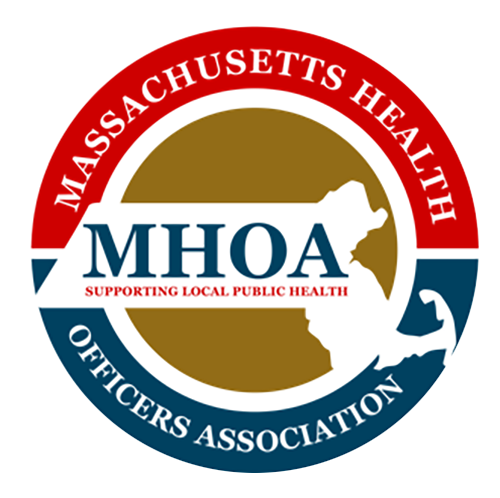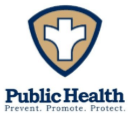Complete Story
11/11/2020
MHOA Spotlight – David Naparstek
By Abby Faria
By Abby Faria
This past week, I had the pleasure of sitting down for a phone call with David Naparstek, the former Health and Human Services Commissioner for the city of Newton, MA. Although Mr. Naparstek retired over ten years ago, he still had plenty of insight on working in local public health, including his current experiences in volunteer-based work during the COVID-19 pandemic. Mr. Naparstek is motivated to volunteer because he wants to “help out the communities” during this time.
Mr. Naparstek served as the Commissioner for the city of Newton, MA, where a lot of his work was involved in health and risk communications. “Newton has very informed residents, and if there was a concern, there needed to be an informed response to the concerns,” he said. For example, residents were uneasy when they thought that pesticide usage on the MBTA train tracks was associated with breast cancer incidence. He reflected on the fact that particular concerns merited different responses. Mr. Naparstek noted an instance in which local residents expressed concerns that the local water quality might be related to cancer clusters in the area. Here, his response was to “meet with concerned people, listen, explain there are multiple risk factors, explain it can’t be the water because everyone in the city is at the same risk.” His approach to public health was always very education-based. Educating the public was one of the favorite parts of his work because sometimes the questions were very outlandish. For example, there were conspiracy theories about the jet contrails in the sky, such as that these trails were actually tranquilizers being sprayed down on everyone by the government!
Much of Mr. Naparstek’s current volunteer work pertains to helping with the financial needs of those in the community, such as food accessibility and rental assistance. Mr. Naparstek notes that his interest in public health has “always been at the local level,” discussing how “there is a tradeoff between breadth and depth.” At the local level, there’s a tremendous variety of issues, “but you don’t have the luxury of getting too into-the-weeds” on every issue.
Mr. Naparstek first became interested in the field of public health through his participation in Boy Scouts, in which he had to earn a public health merit badge. The person who counseled his badge ran the Nashoba health district at the time. Mr. Naparstek was a senior in high school when he began working with them as the public health laboratory assistant. This was an exciting opportunity for him because the lab worked with tuberculosis, foodborne illnesses, along with water and milk testing. However, a new Introduction to Public Health course created at Tufts University really cinched his interest in the field. The course fit well into his schedule, so he enrolled in it. Mr. Naparsek loved the class and the enthusiasm that the professor had, emphasizing that “you just couldn’t help but get interested in public health.” Mr. Naparstek would go on to work for the Nashoba Health District while in college doing inspections, assessments, and more, which he said “kept me in the game and interested in the field.” He served as Nashoba’s director for nine years before working in Newton.
Once in the field of public health, Mr. Naparstek speaks to how MHOA has provided “tremendous opportunity to share information and ideas with colleagues – both formally through education programs and informally through meals, phone calls, and more – it has created collegiality” among local public health workers. As someone who has beenwas with MHOA for 43 years, he says it is “extremely gratifying” to watch MHOA evolve “from a casual group of mostly guys that smoked and griped together a lot, to a very professional organization of people who strive to continue their education together.”
Mr. Naparstek’s work in local public health has hardly slowed down post-retirement, especially in the wake of the pandemic. “I liken my participation in a pandemic response to my little league baseball career: I sat warming the bench, but I had a great view of the game.” He currently still helps out with MHOA in a variety of ways, including communications, analyses, and assisting Executive Director Dawn Sibor in a variety of ways. He also volunteers with The United Way in Boxborough, as which is a volunteer for foster care review cases and assisting with other local COVID-19 – related communication efforts. In the free time that he has, Mr. Naparstek likes to travel, spend time with his two dachshunds, Nora Pandora and Penne Pasta, exercise, and listen to music.
Looking forward, Mr. Naparstek imagines that he will keep participating in his volunteer work. “Perhaps the most important aspect is fostering an appreciation for local public health. When I was actively employed, there was a constant erosion of my budget…I used a lot of student help, especially for special projects, because staff was so overwhelmed.” He hopes that the current pandemic will help change the landscape of public health in the future. Mr. Naparstek has observed throughout his career that “when prevention works, nothing happens.” He hopes that now since the pandemic has happened, people will appreciate the importance of funding, supporting, and participating in local public health.


